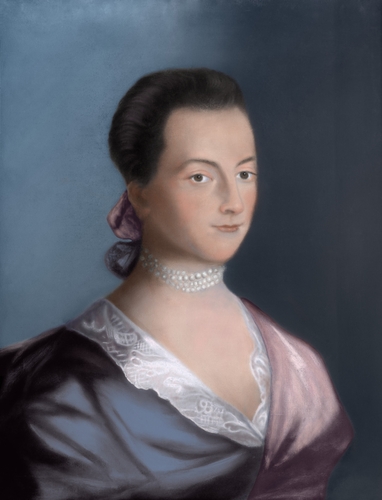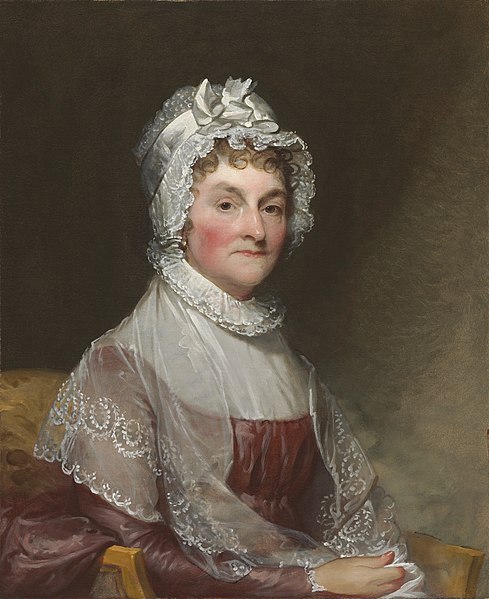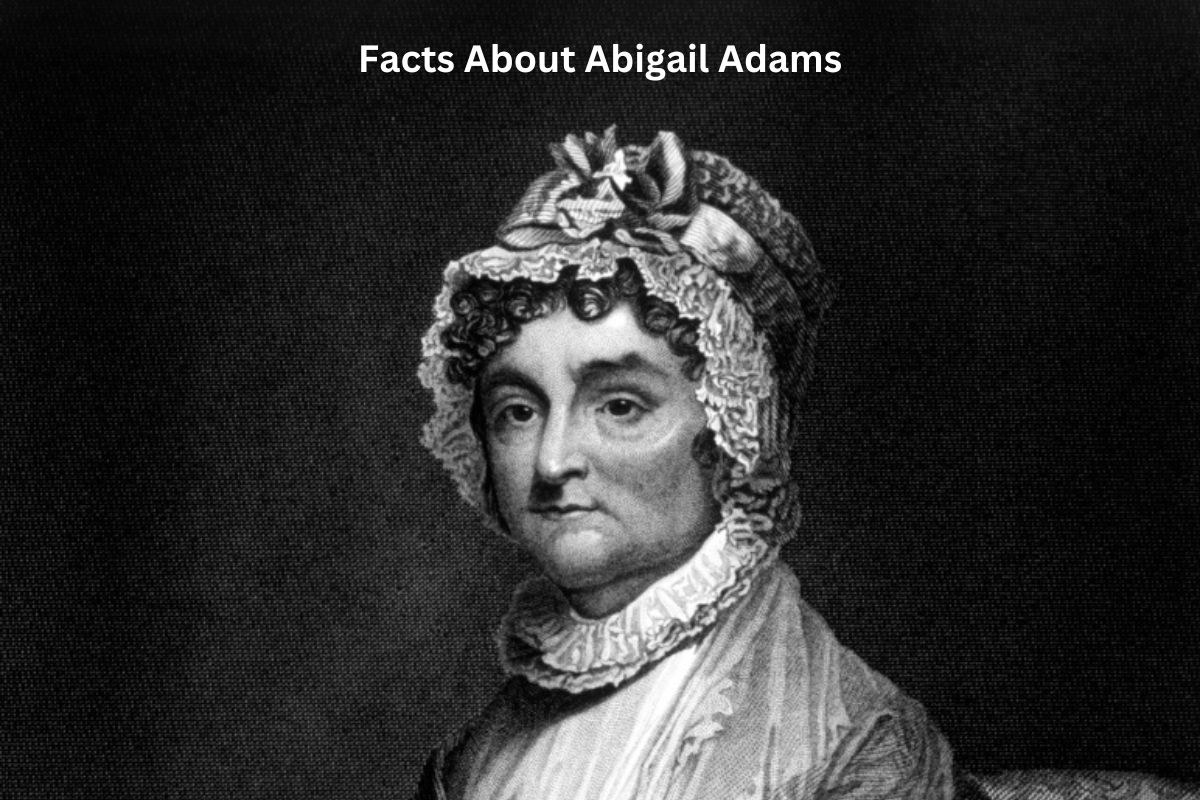Abigail Adams, born in 1744 in Weymouth, Massachusetts, was a prominent figure in early American history. As the wife of John Adams, the second President of the United States, she served as the nation’s second First Lady and played a pivotal role in shaping the course of the young nation.
Abigail Adams is best known for her advocacy for women’s rights, her insightful political correspondence with her husband, and her unwavering stance against slavery.
Her life and contributions continue to be celebrated as a testament to her enduring impact on American society and politics.
Abigail Adams Facts
1. Born on November 22, 1744, in Weymouth, Massachusetts
Abigail Smith was born into a prominent Massachusetts family. Her father, William Smith, was a Congregationalist minister and a Harvard graduate.
Also Read: John Quincy Adams Accomplishments
Her mother, Elizabeth Quincy Smith, came from a family of considerable social and political influence. Abigail’s upbringing in such a family provided her with access to books and education, which was somewhat unusual for women of her time.

2. Married John Adams on October 25, 1764
Abigail Smith married John Adams, a young lawyer, and future Founding Father, on October 25, 1764. Their marriage was a partnership of mutual respect and intellectual engagement.
They were married for more than half a century and had a close and loving relationship despite the challenges posed by John’s frequent absences due to his political career.
3. Advocated for women’s rights and equality
Abigail Adams was a strong advocate for women’s rights and gender equality. In her famous letter to her husband John in March 1776, she wrote:
“I desire you would Remember the Ladies, and be more generous and favorable to them than your ancestors. Do not put such unlimited power into the hands of the Husbands. Remember all Men would be tyrants if they could.”
This letter illustrates her early and progressive views on women’s rights, even during the revolutionary era when such ideas were relatively uncommon.
Also Read: Accomplishments of Abigail Adams
Her advocacy for women’s rights and her letters have become important historical documents that shed light on the early feminist movement in America.
4. Maintained extensive political correspondence with her husband
Abigail Adams and John Adams maintained a rich and extensive correspondence throughout their lives, which provides invaluable insights into the political and social issues of their time.
While John was often away due to his political career, Abigail played a vital role in staying informed about political developments and offering her insights.
Her letters to John often discussed matters of national importance, including the American Revolution, the drafting of the U.S. Constitution, and the early years of the United States.
5. Managed the family farm during the American Revolution
During the American Revolutionary War, Abigail Adams took on the role of managing the family farm in Braintree, Massachusetts, in John’s absence.
This responsibility included making crucial decisions about the property, finances, and family matters. Abigail’s ability to manage these responsibilities effectively while maintaining her correspondence with John showcased her strength and resourcefulness.

6. Lived at Peacefield in Quincy, Massachusetts
Abigail and John Adams lived in a historic home known as Peacefield, located in Quincy, Massachusetts. This home, originally known as the “Old House,” became their primary residence later in life.
Peacefield was not only their family home but also a center of political activity and intellectual discourse. Today, it is part of Adams National Historical Park and is open to the public.
Visitors can explore the historic house and learn more about the Adams family’s contributions to American history.
7. Served as the second First Lady from 1797 to 1801
Abigail Adams served as the second First Lady of the United States from 1797 to 1801 during the presidency of her husband, John Adams.
During her time as First Lady, the term “First Lady” was not yet in common use, but she effectively filled the role of the president’s wife.
Abigail Adams hosted social events and gatherings at the White House (then known as the President’s House), and she was highly regarded for her graciousness and intelligence.
8. Spoke out against slavery and supported abolition
Abigail Adams was an outspoken advocate against slavery. She believed in the abolition of slavery and corresponded with friends and family members, including her husband John, about the inhumanity of the institution.
In her letters, she expressed her moral objections to slavery and her desire to see it come to an end, even though this was a controversial stance in her time.
9. Passed away on October 28, 1818
Abigail Adams passed away on October 28, 1818, at the age of 73. Her death marked the end of a remarkable life dedicated to family, intellectual pursuits, and advocacy for important causes.
Her passing was a loss to the nation, and she is remembered for her contributions to American history and the early feminist movement.
10. Left a lasting legacy in American history
Abigail Adams left a profound and lasting legacy in American history. Her advocacy for women’s rights, her role as a confidante to her husband, her principled stance against slavery, and her extensive correspondence have all contributed to her enduring impact.
She is often referred to as “Mrs. President” due to her significant influence on John Adams’ political decisions and is considered one of the most important women in American history. Her life and writings continue to be celebrated and studied as a source of inspiration for generations of Americans.
